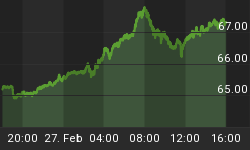Following our recent commentaries on Peru's mining tax increases and Argentina's cancellation of mining permits, now Mongolia wants bigger stake in massive Ivanhoe copper mine - article reading time 1 minute.
The article reports that the Mongolian government wants to renegotiate its share in the Ivanhoe Mines (TSX:IVN) Oyu Tolgoi copper-gold project to 50% from its current 34%. This, according to the article, "amid public pressure as it heads into parliamentary elections next year".
'Fact-specific' situations aside, I suggest you increasingly think about Country Risk broadly, particularly in developing countries. As I see things it is quite possible that we will see much more by way of income tax increases, required 'good works contributions', government regulation, government ownership intervention, and so on in developing countries as their mining and oil & gas resources are explored for and produced by foreign resource companies.
I say this because the exploration and development costs to find a resource typically are large. Unlike many non-resource businesses, the resource (i.e. the business) can't be physically moved. It seems to be that this means once any given developing country government is satisfied that a sufficient number of foreign resource companies have expended sufficient capital, and found sufficient resources to 'lock them into staying in the country', that a form of the Golden Rule then will apply.
I am sure you are well aware of the Golden Rule - he who owns the gold makes the rules. In the case of developing countries I suggest three things"
-
Governments continually change, and the elapsed time from beginning exploration to commercial production typically is between 5 - 7 years for a mining company, less for an oil & gas company.
-
Governments make the rules in their individual countries, which rules may be subject to International Law - but pursuing an International Law Claim brings with its own set of problems and uncertainties.
-
Foreign resource companies that expend significant sums of money in developing countries are bearing incremental risk over those same expenditures where made in developed countries - which incremental risk needs to be compensated for by 'incremental' return on investment.
Stock Research Portal will be introducing new Country Risk data features going forward, with the first to be introduced on or about October 17. We expect these new Data Features to enable our Subscribers to better and much more efficiently, research Country Risk than they currently are able to do.















